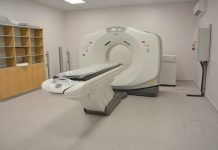How to become a nurse anesthetist in South Africa…
So what is a CRNA and what do they do?
1. Certified registered nurse anesthetists/anesthesiologists (CRNAs) are advanced practice registered nurses that practice with a high degree of autonomy and professional respect. CRNAs are qualified to make independent judgments regarding all aspects of anesthesia care based on their education & licensure. They are the only anesthesia professionals with critical care experience prior to beginning formal anesthesia education.
2. required to have a minimum of 9-10 years of training/education/experience before we can become a licensed CRNA. (BSN+ICU years+DNP)
3. Graduates of nurse anesthesia programs have an average of 9,369 hours of clinical experience, including 733 hours during their baccalaureate nursing program, 6,032 hours as a critical care registered nurse, and 2,604 hours during their nurse anesthesia program.
4. CRNAs administer anesthesia and provide care in EVERY setting in which anesthesia is delivered: traditional hospital surgical suites & obstetrical delivery rooms; critical access hospitals, ambulatory surgical centers, ketamine clinics, offices such as dentist, podiatrists, ophthalmologists and much more.
5. CRNAs perform pre and post-operetive rounds, consult for pain management, place central lines, respond to codes, place and manage labor epidurals, upon consultation implement respiratory and ventilatory management including establish emergency airways
6. CRNAs are not “medical” doctors, rather are known as APRNs (advanced practice registered nurses). CRNAs complete advanced nursing degrees at the “DOCTORAL” level.
Ahmed Elsayed























